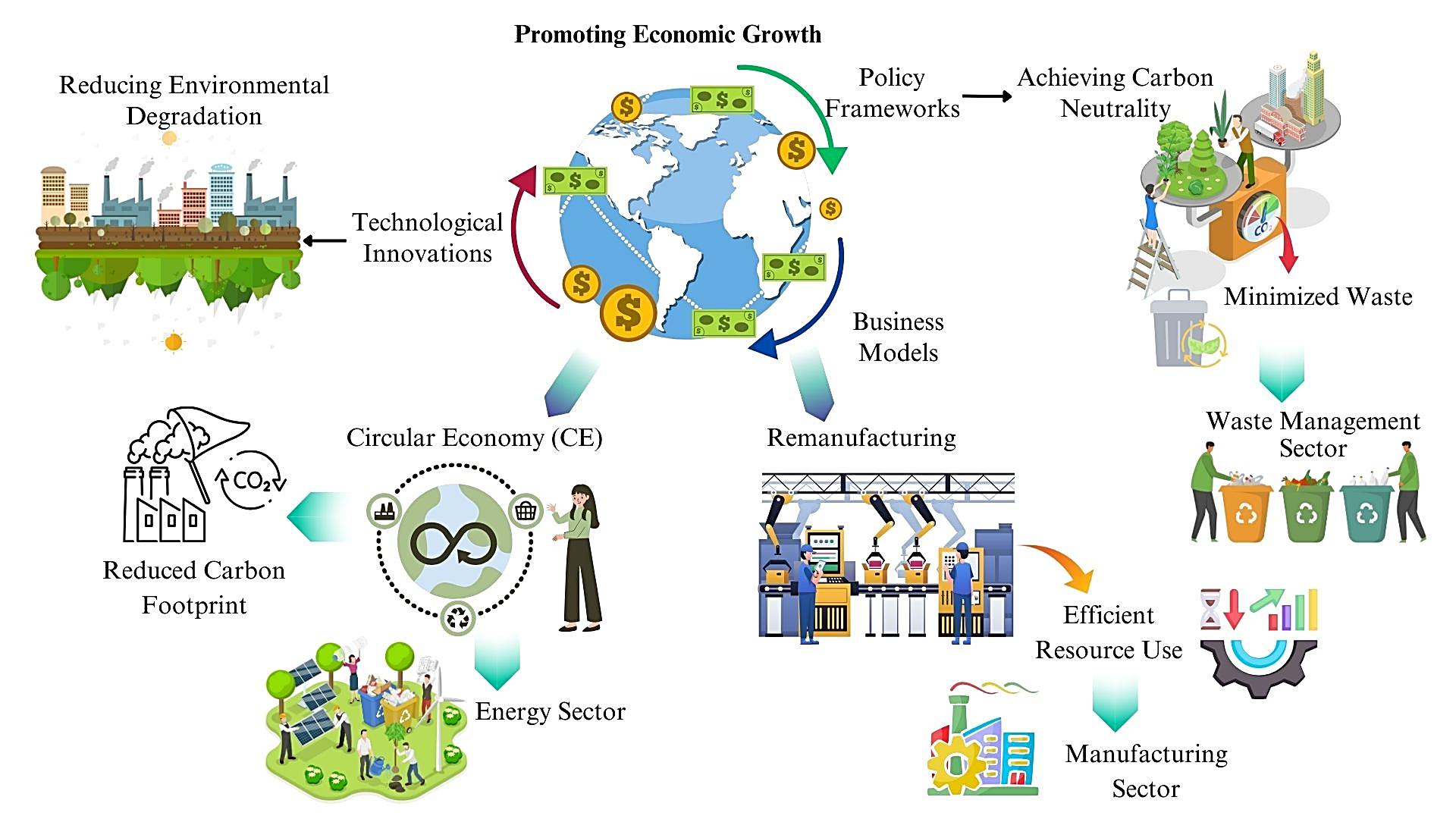
Circular economy (CE) strategies have emerged as a key solution for mitigating climate change and addressing critical environmental challenges, including resource depletion, waste generation, and pollution. The CE concept highlights the value of prolonging product life cycles through reuse recycling remanufacturing and sharing all of which promote economic growth in addition to environmental sustainability. This research examines several CE tactics that can be used to mitigate other environmental problems and fight climate change. It emphasizes how important it is to minimize waste lower carbon footprints and encourage the wise use of natural resources. Additionally, the study assesses how CE affects industries like waste management manufacturing, and energy. CE strategies provide a thorough response to global sustainability issues by integrating business models policy frameworks and technological advancements. The operationalization of CE across industries is the main focus of the study which also looks at how these tactics can help achieve carbon neutrality and lessen environmental deterioration. Policymakers’ corporations and other stakeholders can use the practical advice in this paper to adopt CE practices that support the objectives of the global climate. Moreover, the study assesses the opportunities and difficulties of implementing CE practices and provides helpful suggestions for attaining both financial and environmental gains. The study’s overall findings highlight CEs' capacity to address the intricate relationships between environmental problems and climate change while promoting a sustainable future for future generations.
Total file downloads: 35